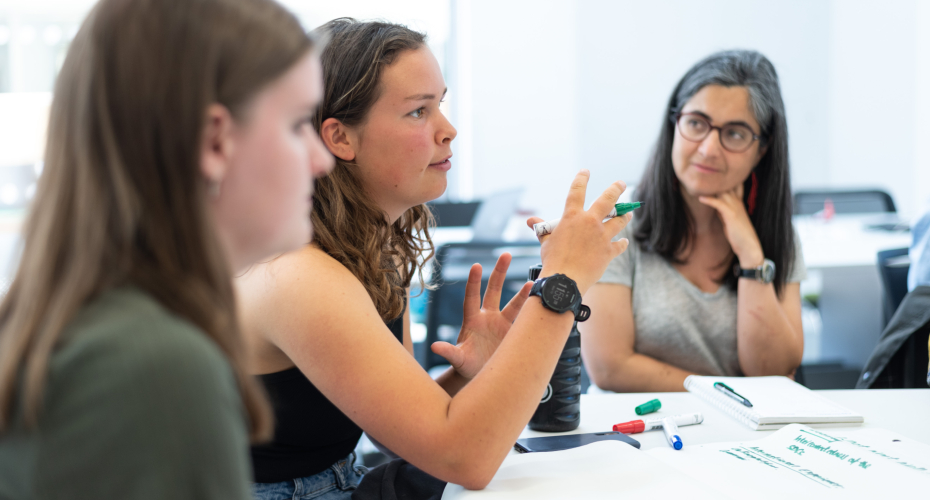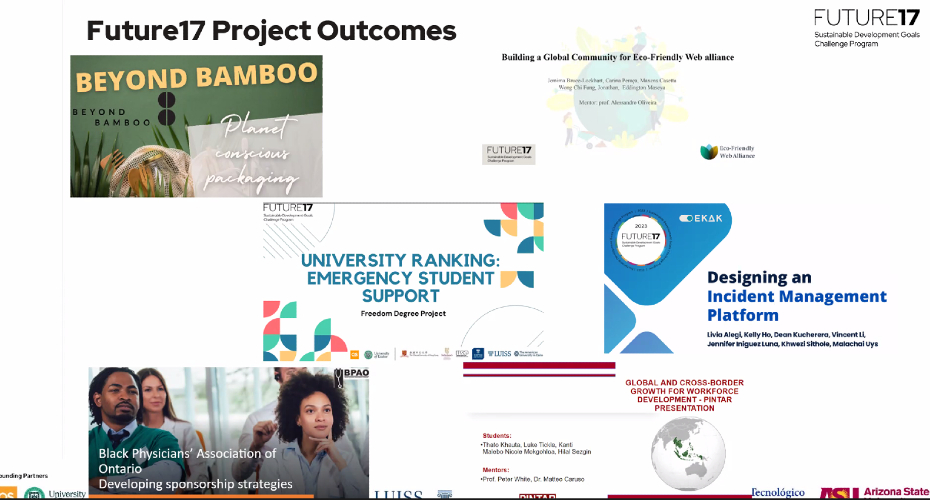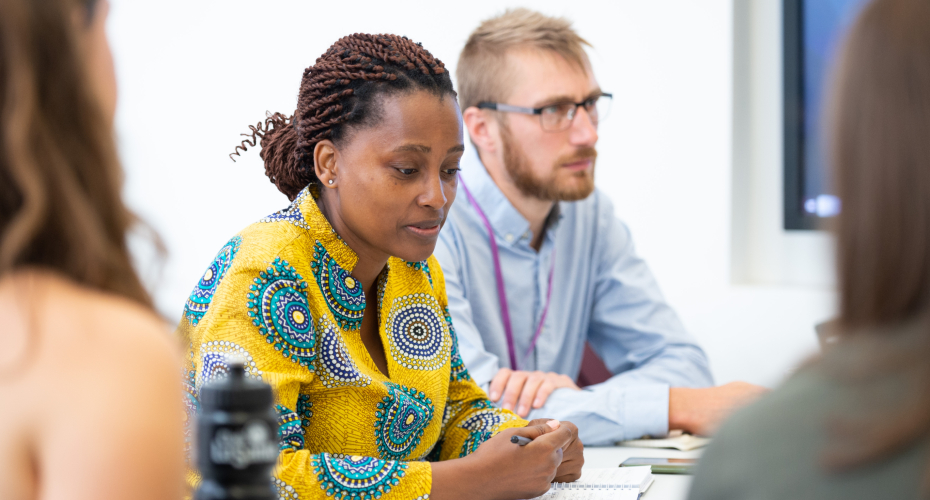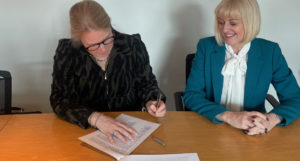Students graduate from global learning programme focused on real-world sustainability challenges

Around 50 University of Exeter students are celebrating their graduation from a groundbreaking and global programme that tackles real-world sustainability challenges.
They are among 300 students from around the world who have all completed the Future17 SDG Challenge, enabling them to work with international organisations as far afield as South America, Africa and Asia Pacific.
Together, they have tackled: tire and plastic bottle recycling and pollution issues in Cameroon; public-led wildfire prevention in the United States of America; and methods of converting hotel food waste into animal feed pellets in Singapore.
Future17 was created by the University of Exeter and higher education analyst QS Quacquarelli Symonds in 2022, to enable students from partner institutions to develop career and life skills related to the UN’s Sustainable Development Goals.
It now boasts a growing network of partner universities and challenge-setting organisations consisting of multi-national companies, NGOs, start-ups and charities.
Professor Tim Quine, Deputy Vice-Chancellor (Education and Student Experience), said: “Through Future17, we are creating virtual classrooms and consultancies, where students, thousands of miles apart, advance their global and cultural understanding by working on genuinely impactful projects with a plethora of different organisations. It’s proving to be a brilliant way of developing global citizenship and outlook without generating a large carbon footprint. Our sincere congratulations to all of the graduating students for engaging so enthusiastically in seeking positive solutions for a brighter future.”
The students all received their certificates at a ceremony on Friday held online, in keeping with the ethos of the programme.

This year, 31 organisations provided a choice of 44 challenges for the students, including among them multinational technology services company CapGemini – who set a challenge around climate change adaptation – and Sri Lankan firm T-Hues – who tasked students with a project on recycling tea waste into fabric dyes.
Ben Howard-Cooper, Head of Sustainable Finance at Briink Intelligence in Germany, which set two challenges for the students, said: “By leveraging student support we were able to push through projects that would’ve otherwise taken us months if not a year to complete, so that was a huge help. Making sure that we are working with the current student communities to upskill and train them around sustainability so that they can take the baton and run with it as they enter the workplace over the next couple of years, was something that meant a lot to our organisation.”
The Future17 programme runs for 12 weeks, with students either taking it as part of their degree or as extra-curricular experience and development. After a four week-induction, with training; the next eight weeks are spent in interdisciplinary and international groups of six-to-eight students from three or more universities work with two academic mentors and the challenge partner. Group work on the project culminates in a written piece and presentation, and challenges the students to develop cultural competencies, digital skills, collaborative working behaviours and critical problem-solving – skills that are greatly valued by employers.
The programme reflects the increasing importance of sustainability to prospective students and employers. A survey undertaken by QS found that 79% of prospective international students consider an institution’s sustainability practices extremely or very important, with 82% saying they would actively seek information on these practices.
QS President and Chair Nunzio Quacquarelli said: “QS is thrilled to be a co-founder of the Future17 SDG Challenge Program. It offers students a unique experiential learning opportunity without borders, bringing together students and organizations from around the globe under one common goal, fostering sustainability, collaboration and innovation for a better future.
“By delivering real-world projects, students develop cultural competencies, digital skills, collaborative workflows, critical problem-solving and work experience to enhance their personal growth and future employment prospects.”
Participating alongside founders Exeter are South Africa’s Stellenbosch University; the Chinese University of Hong Kong; the University of Sao Paulo, Brazil; the American University in Cairo, Egypt; LUISS, Italy; the University of Auckland, New Zealand; the American University of Sharjah, UAE; and Arizona State University, USA.




